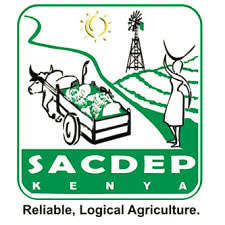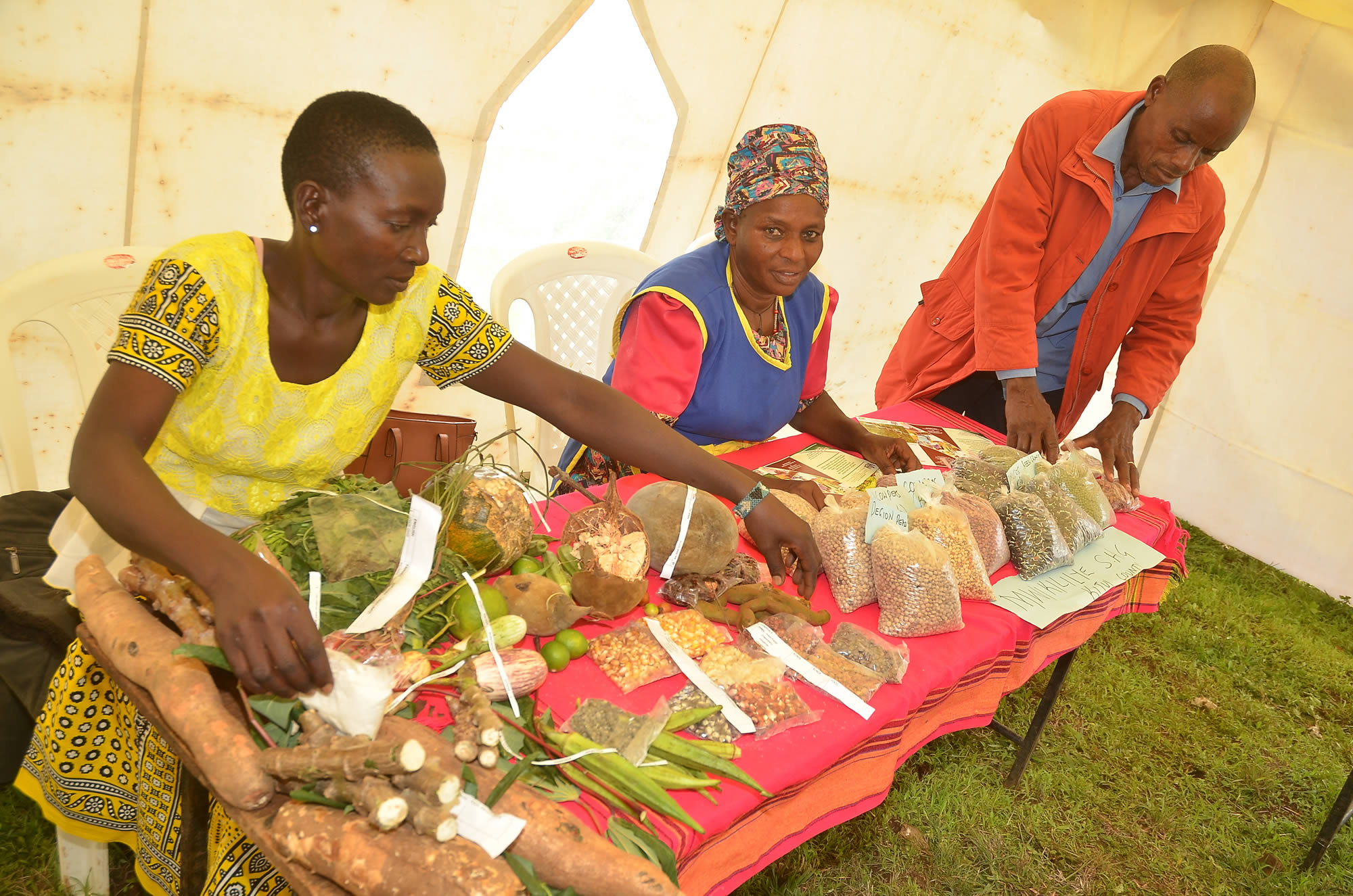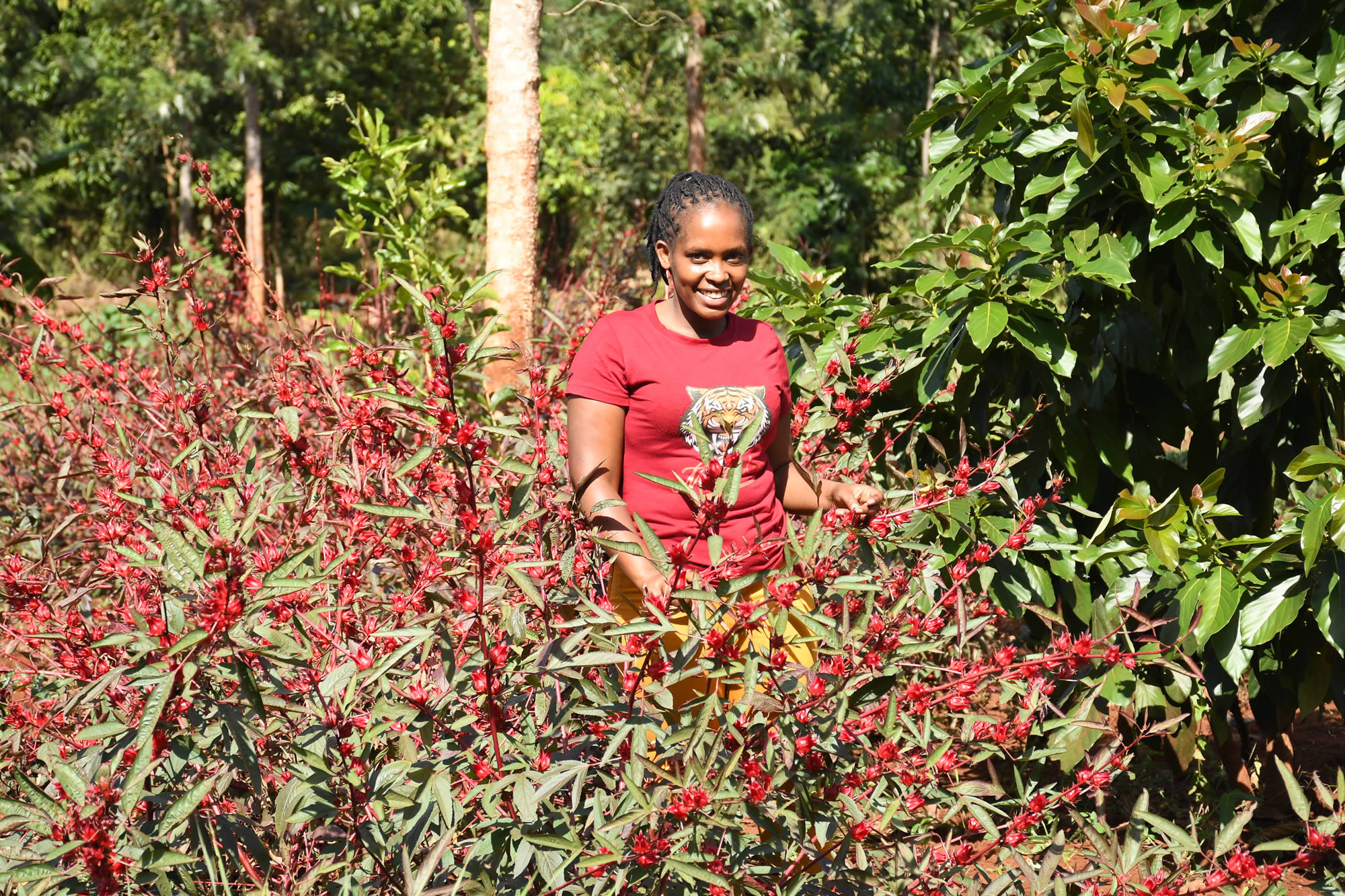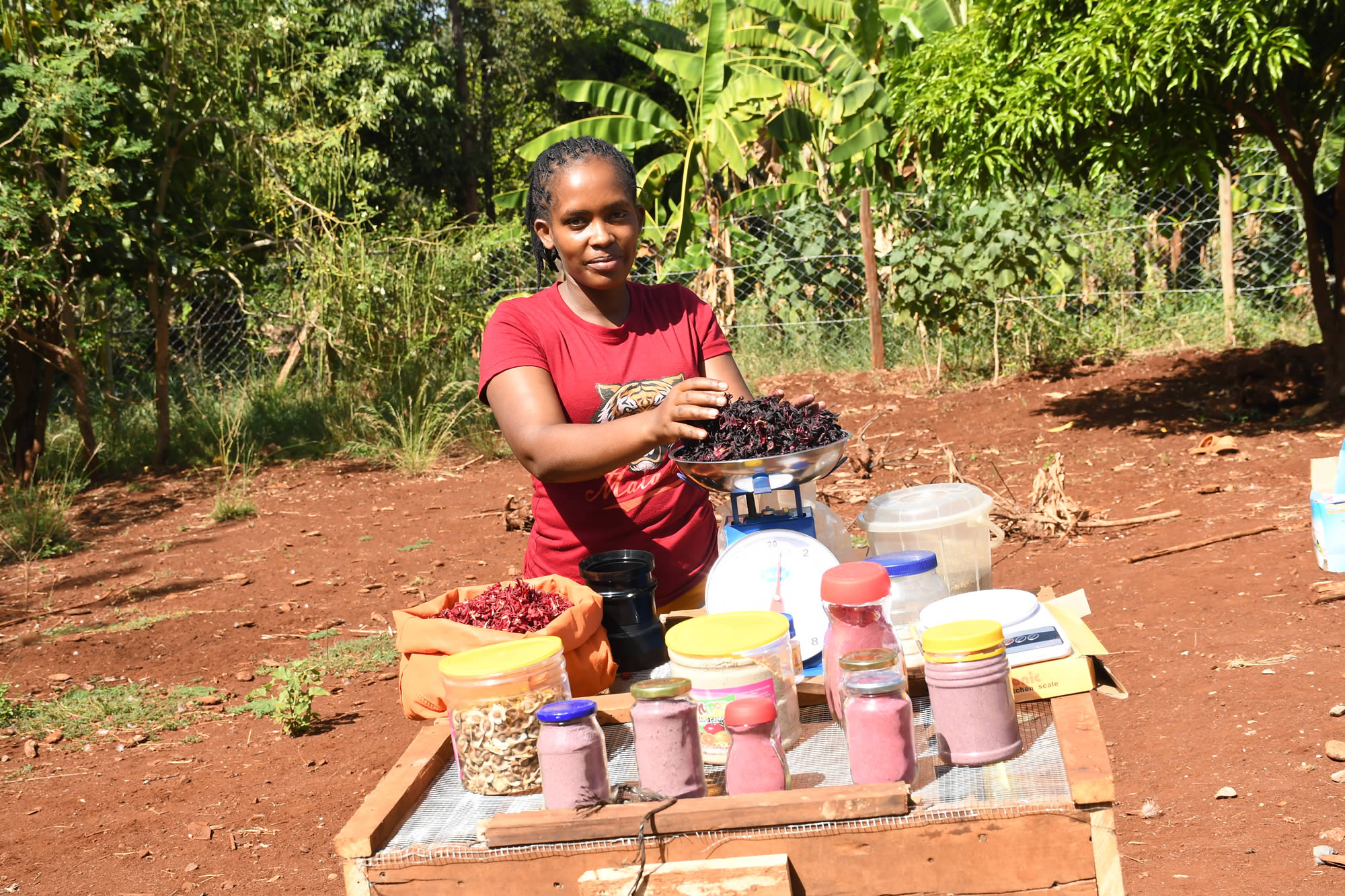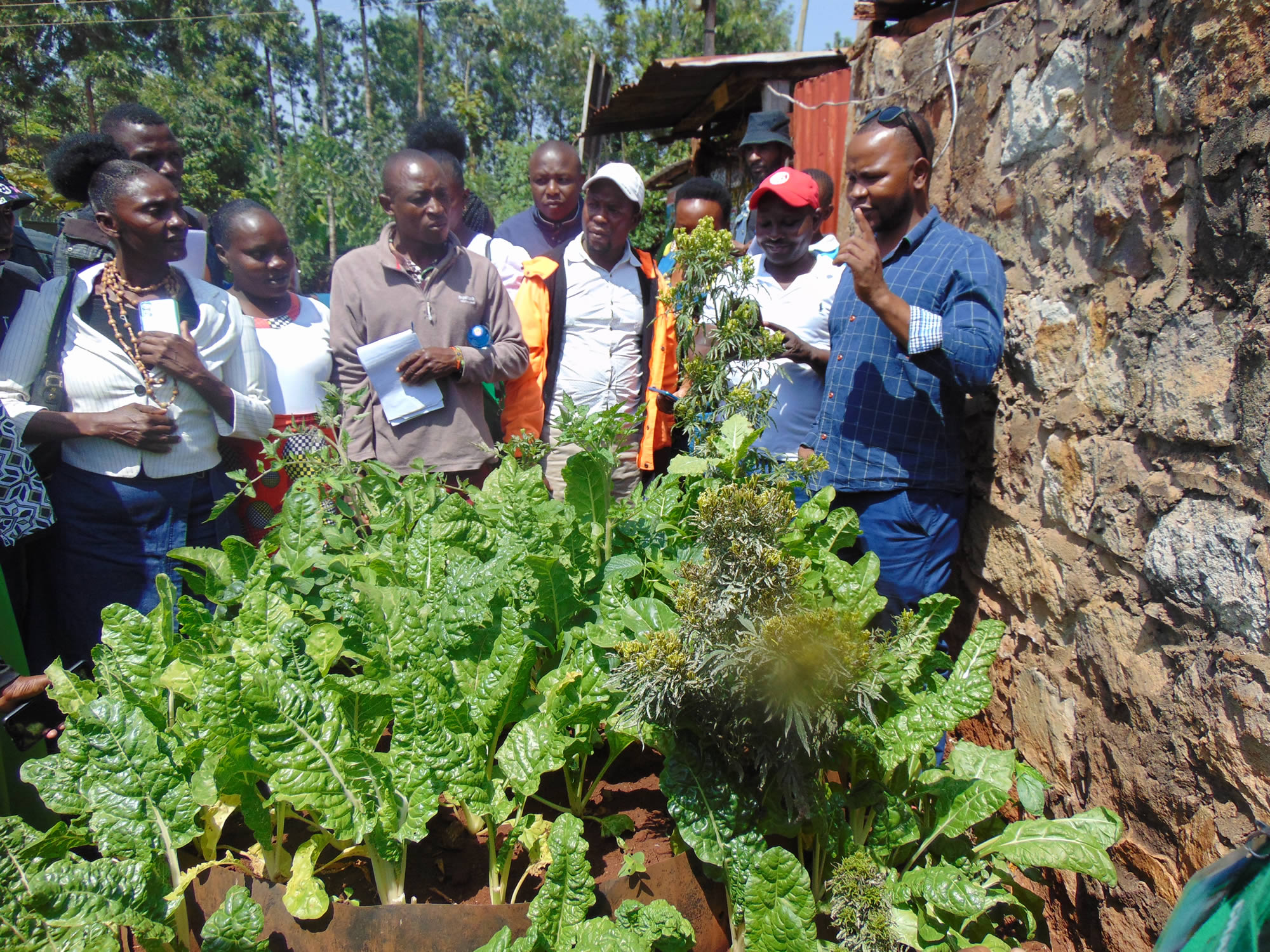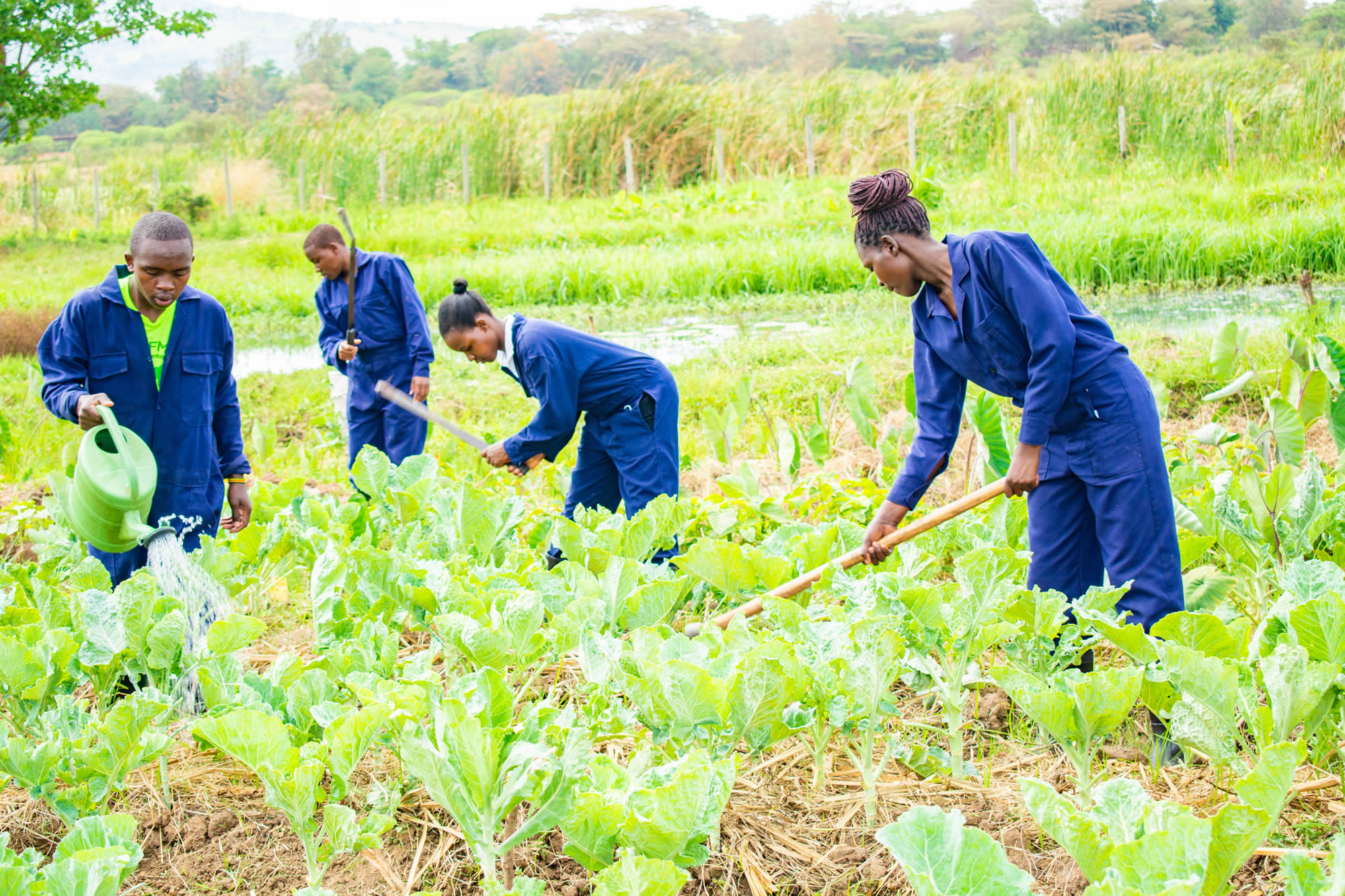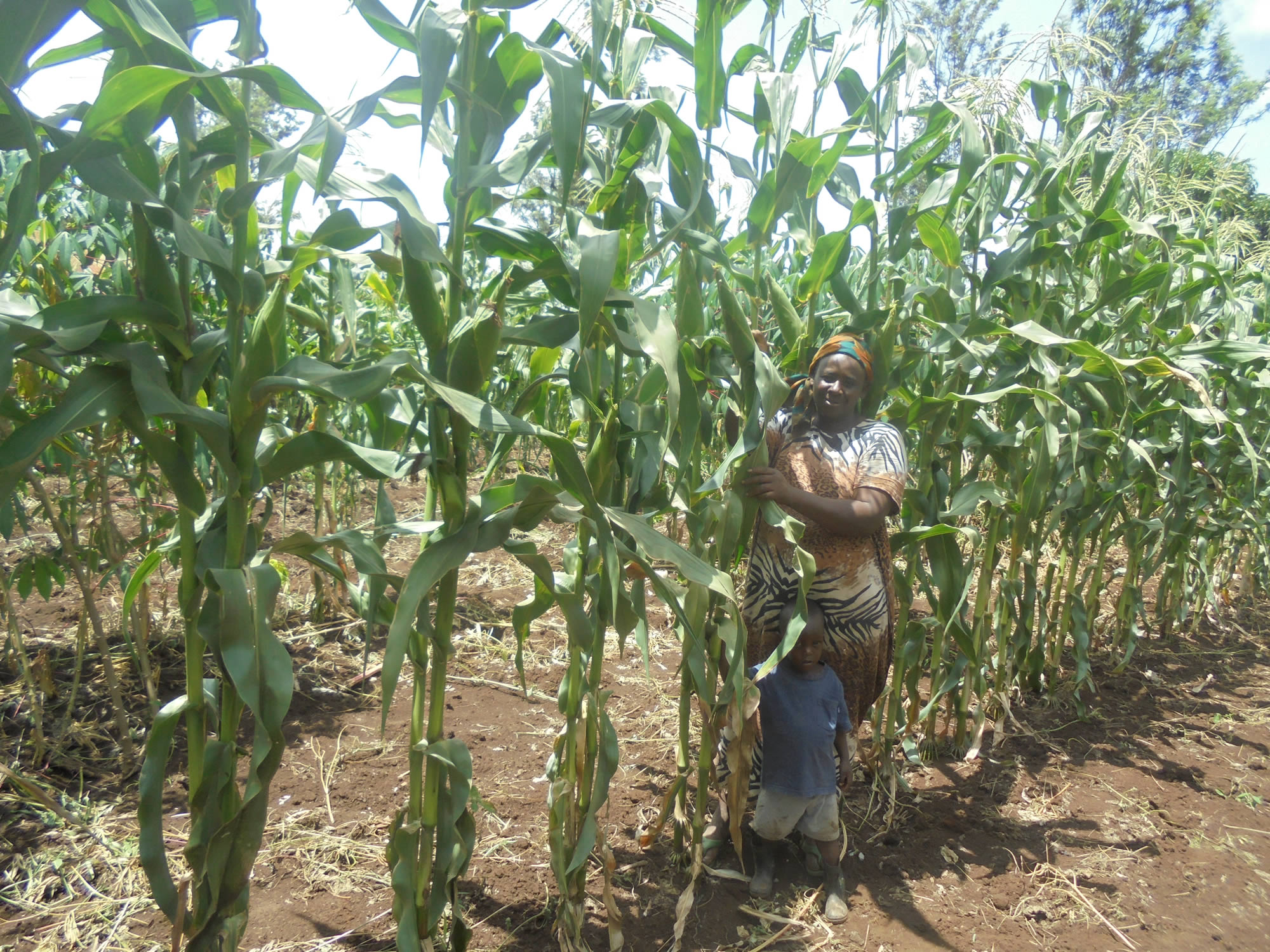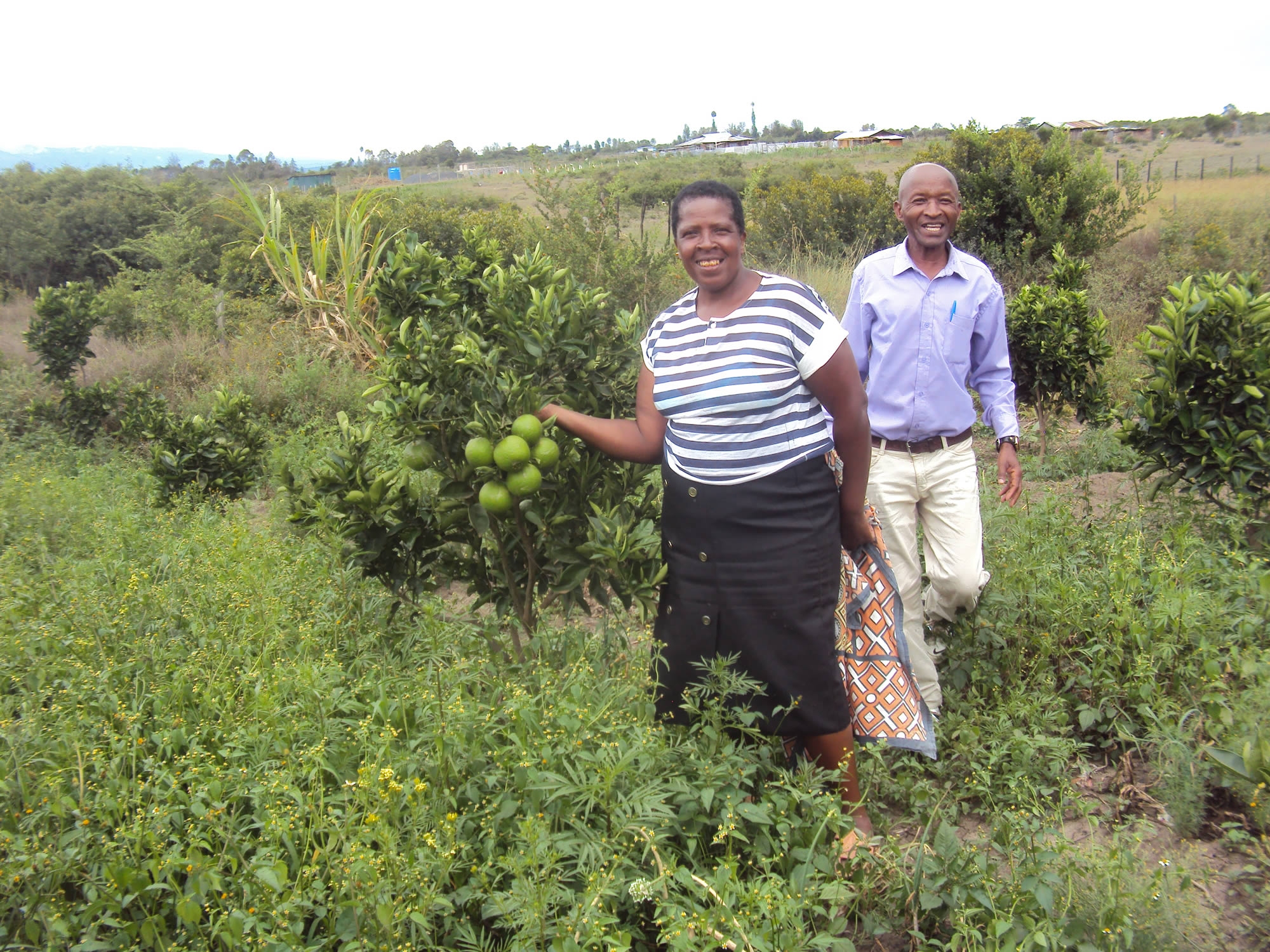Community Agriculture Programs (CAPs) Sector
Community Agriculture Programs (CAPs) Sector Empowering Communities, Sustaining Livelihoods.
The Community Agriculture Programs (CAPs) Sector directly engages resource-limited smallholder farmers, youth, and marginalized communities in wealth creation through hands-on learning in Sustainable Ecological Agriculture (S.E.A.) principles, pillars, and practices.
Sector Role
CAPs partners with low-income and marginalized communities to enhance their skills in S.E.A., empowering them to achieve food, nutrition, and income security.
Thematic focus areas include:
- Crops and Livestock Improvement
- Youth Empowerment and Social Inclusion
- Smallholder Marketing and Financial Inclusion
- Value Addition & Market Linkages
- Natural Resource Management and Conservation
- Water, Health, and Policy Advocacy
Reach and Impact
The Organization is clear that external resources do not create development. Rather, they are ejected in so as to catalyze the slow process of changing people’s lives positively. Upon provision of knowledge and skills, farmers are more exposed, informed and empowered. They are hence able to design and follow their desired destiny in life.
To achieve this, SACDEP works on the following programmes:
- Farmers’ mobilization and organization into agricultural development fora.
- Conducting hands-on training and exposure to the groups in all aspects of agriculture – production, processing, marketing or Organic products.
- Training and supporting farmer groups in the creation of a savings and credit culture.
- Documentation of Sustainable Agriculture Principles and using the same to inform and influence development policies, approaches and practices.
- Networking with the development Institutions of Government, funders, NGOs and individuals committed to Sustainable Development and empowering of people.
Projects Under CAPs Sector
The sector implements various projects to strengthen agricultural livelihoods:
- Mangoes from Above (MFA V): Financial inclusion, value addition, market linkages, advocacy.
- MALVE II: Water access, livestock improvement, marketing, wildlife management, and natural resource conservation.
- Water, Livestock & Market Gardening (WLG 8): Water harvesting, small livestock rearing, seed and crop management, renewable energy.
- Coastal Fruits, Nuts, and Livestock (CFNL): Fishing, fish marketing, fruits, nuts, and livestock.
- AWAMA: Aberdare Watershed Conservation.
- Olempoor Community School: Increasing access to education.
- Organic Beverage: Farming diversification, production, value addition, and marketing of organic herbs.
- EOA: Strengthening agro-ecology practices.
- Solarization Project: Solar-powered boreholes (8 sites).
- ECOSIA: Tree planting for conservation.
- Rangers Empowerment I & II: Wildlife management in group ranches.
- Lamu Cotton: Organic cotton production, processing, and marketing.
- Water Harvesting: Turkish International Development Agency initiative.
- Donkey Welfare: Improving working conditions for donkeys and their owners.
- PENELI: Connecting smallholder farmers to markets.
- SACDEP-Tanzania: Expanding S.E.A. knowledge and practices.
Sector Achievements
- 450,000 people trained in drought resilience through S.E.A., water harvesting, and natural soil fertility management.
- 3 million trees and 500,000 fruit trees planted to support climate change mitigation.
- 35 biogas artisans trained and 122 biogas units (10 cubic meters)
- Five irrigation systems established, benefiting 550 families and irrigating 1,375 acres of land.
- 70 million mobilized through farmer-led savings and loan schemes (Banks Without Walls – BWWs), providing affordable credit for smallholder farmers, especially women and youth.
- 2,754 Farmer Trainers (Practicing Skills Providers – PSPs) trained to support sustainable agricultural development.
Why CAPs Stands Out
CAPs has empowered smallholder farmers with practical, cost-effective, and environmentally friendly S.E.A. techniques. These skills enable farmers to improve their productivity and resilience to climate change. With over three decades of experience, CAPs continues to support vulnerable communities in securing sustainable livelihoods
Defining Success
Success in CAPs is achieved when resource-limited and marginalized communities attain food, nutrition, and income security while gaining economic and social choices to shape their own futures.
CAPs measures success through:
- Increased household food security.
- Growth in farmer incomes and savings.
- Adoption of S.E.A. practices for long-term sustainability.
Future of CAPs
CAPs envision:
Expanding financial and technical capacity to address developmental challenges in Kenya and beyond.
A well-trained workforce equipped with modern agricultural and technical skills to meet the rising demand for S.E.A. and sustainable development initiatives.
Strengthening partnerships with local and international stakeholders to enhance impact.
Call to Action
CAPs invites policymakers, development partners, and agricultural practitioners to collaborate in expanding sustainable agriculture solutions. Together, we can enhance food security, climate resilience, and economic empowerment for smallholder farmers.
